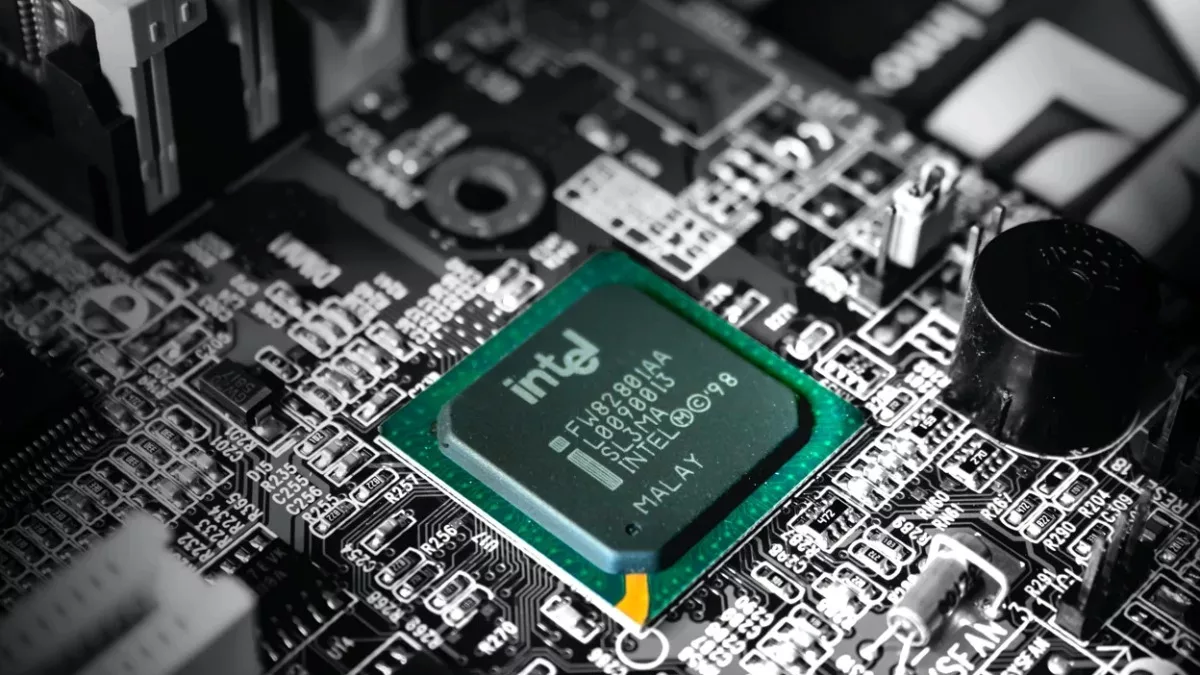Intel's Gaudi3 AI chip challenges Nvidia in the AI hardware market. Core Ultra processors and Xeon chips cater to AI tasks, signalling Intel's push for industry relevance.

Intel’s recent introduction includes the Gaudi3 AI chip, a significant development in the company’s efforts to compete in the AI hardware market dominated by Nvidia. The Gaudi3 chip, designed for generative AI software, is slated for release in the coming year and is expected to challenge Nvidia’s H100 and AMD’s MI300X, key players in AI model processing.
Generative AI, such as OpenAI’s ChatGPT, has predominantly relied on Nvidia GPUs for efficient processing. This reliance has contributed to Nvidia’s substantial stock gains, prompting competitors like AMD and now Intel to introduce alternative chips, hoping to attract AI companies away from Nvidia’s market stronghold.
Also Read: 4-Step Tutorial on how to create a GPT – No coding required
Intel CEO Pat Gelsinger emphasized the significance of generative AI and projected the AI PC to take center stage in the upcoming year. Alongside Gaudi 3, Intel announced the Core Ultra processors, designed for Windows laptops and PCs, featuring a specialized AI component known as the NPU (Neural Processing Unit) for accelerated AI program execution. While not designed to match the processing power of Nvidia GPUs, these chips can handle smaller tasks, as exemplified by Zoom utilizing Intel chips for its background-blurring feature.
The Core Ultra processors are built using the company’s 7-nanometer process, which is more power-efficient than earlier chips. and the added graphics muscle can help programs like Adobe Premiere run more than 40% faster.
Also Read: Lenovo and NVIDIA Collaborate to Propel Generative AI Adoption in Enterprises
In addition to the consumer-focused Core Ultra, Intel introduced fifth-generation Xeon server chips, crucial for large organizations and cloud companies. These chips, often paired with Nvidia GPUs, empower servers used for training and deploying generative AI models. The latest Xeon processor, with a focus on inferencing (deploying AI models), is anticipated to be less power-hungry than the training process, catering to evolving AI needs.
While Intel didn’t disclose pricing details for the new Xeon processors, the company’s expansion into AI-focused chips signals a broader industry trend. Traditional processor manufacturers, including Intel, AMD, and Qualcomm, are strategically realigning product lines to capitalize on the growing demand for AI-driven applications. This move reflects a competitive landscape where companies are vying to establish dominance in the evolving field of artificial intelligence hardware. Intel’s latest offerings underscore its commitment to remaining a key player in this dynamic and rapidly advancing sector.
Also Read: OpenAI Explores Developing Its Own AI Chips to Address Shortage
This post was last modified on December 16, 2023 1:25 pm
What is digital arrest, and why is it becoming critical in today’s cybercrime-ridden world? This…
AI in Cybersecurity segment: AI has the potential to revolutionize cybersecurity with its ability to…
Explore the best AI security solutions of 2025 designed to protect against modern cyber threats.…
Autonomous agent layers are self-governing AI programs capable of sensing their environment, making decisions, and…
Artificial Intelligence is transforming the cryptocurrency industry by enhancing security, improving predictive analytics, and enabling…
In 2025, Earkick stands out as the best mental health AI chatbot. Offering free, real-time…